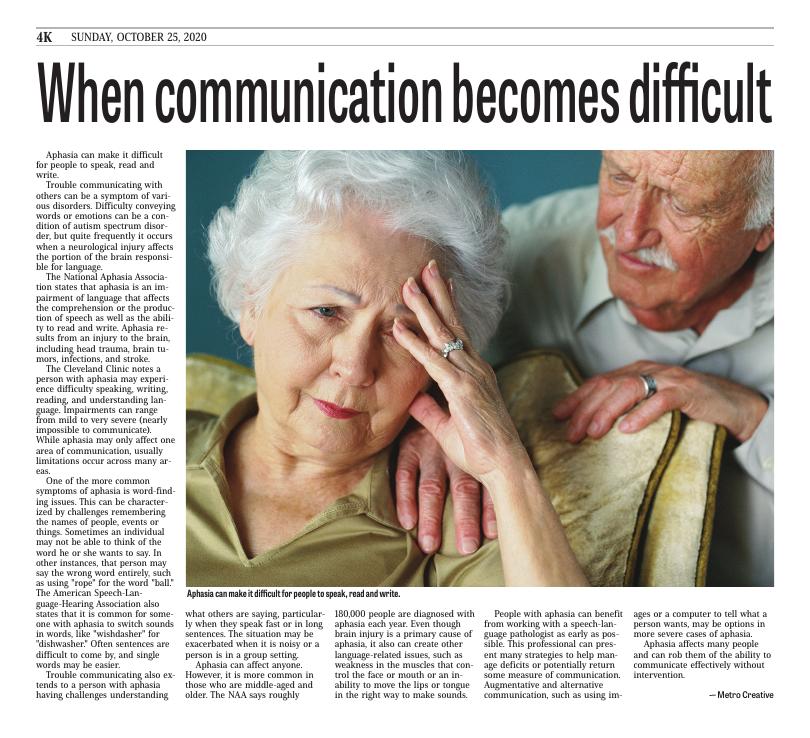Websites provide wealth of information for health, safety during pandemic
Medicare.gov, the official U.S. government site for Medicare, and other agencies with online resources are readily available to answer questions you may have during this time of COVID-19.
Coronavirus.gov is the source for the latest information about COVID-19 prevention, symptoms, and common concerns seniors and others may have.
CDC.gov/coronavirus contains the latest public health and safety information from the Centers for Disease Control regarding COVID-19.
USA.gov provides the latest information about what the U.S. government is doing in response to COVID-19.
According to the CDC, older adults and people who have severe chronic medical conditions like heart, lung, or kidney disease seem to be at higher risk for more serious COVID-19 illness. This means that most people with Medicare are at higher risk.
The President’s Coronavirus Guidelines for America includes the following recommendations:
• Listen to and follow the directions of your state and local authorities.
• Keep the entire household at home if someone in your household has tested positive for coronavirus.
• If you’re an older person or if you’re a person with a serious underlying health condition that can put you at increased risk, stay home and away from other people.
Ways to slow the spread of COVID-19
• Avoid social gatherings in groups of more than 10 people.
• Avoid close contact (6 feet, which is about two arm lengths) with people who are sick.
• Work or engage in schooling from home whenever possible.
• Avoid eating or drinking at bars, restaurants, and food courts — use drive-thru, pickup, or delivery options.
• Avoid discretionary travel, shopping trips, and social visits.
Hygiene precautions
• Wash your hands often with soap and water for at least 20 seconds, especially after being out in public, blowing your nose, coughing, or sneezing.
• If soap and water aren’t available, use a hand sanitizer that contains at least 60% alcohol.
• As much as possible, avoid touching high-touch surfaces in public places, such as elevator buttons, door handles, handrails, and handshaking with people. Use a tissue or your sleeve to cover your hand or finger if you must touch something.
• Avoid touching your face, nose, and eyes.
• Clean and disinfect your home to remove germs: Practice routine cleaning of frequently touched surfaces — tables, doorknobs, light switches, handles, desks, toilets, faucets, sinks, and cell phones.
Preparing for health-care needs
• Be sure you have over-the-counter medicines and medical supplies to treat fever and other symptoms. Most people will be able to recover from COVID-19 at home.
• Have enough household items and groceries on hand so that you’ll be prepared to stay at home for a period of time.
Coping with stress
Older people are at higher risk for severe illness from COVID-19 which may result in increased stress during a crisis. To help cope with stress:
• Take breaks from watching, reading, or listening to news stories and social media. Hearing about the pandemic repeatedly can be upsetting.
• Take care of your body. Take deep breaths, stretch, or meditate. Try to eat healthy, well-balanced meals; exercise regularly; get plenty of sleep; and avoid alcohol and drugs.
• Make time to unwind. Try to do some other activities you enjoy.
• Connect with others. Talk with people you trust about your concerns and how you are feeling.
• Call your health-care provider if stress gets in the way of your daily activities for several days in a row.
• If you, or someone you care about, are feeling overwhelmed with emotions like sadness, depression, or anxiety, or feel like you want to harm yourself or others, call 911 Substance Abuse and Mental Health Services Administration’s Disaster Distress Helpline, 1-800-985-5990.















































































